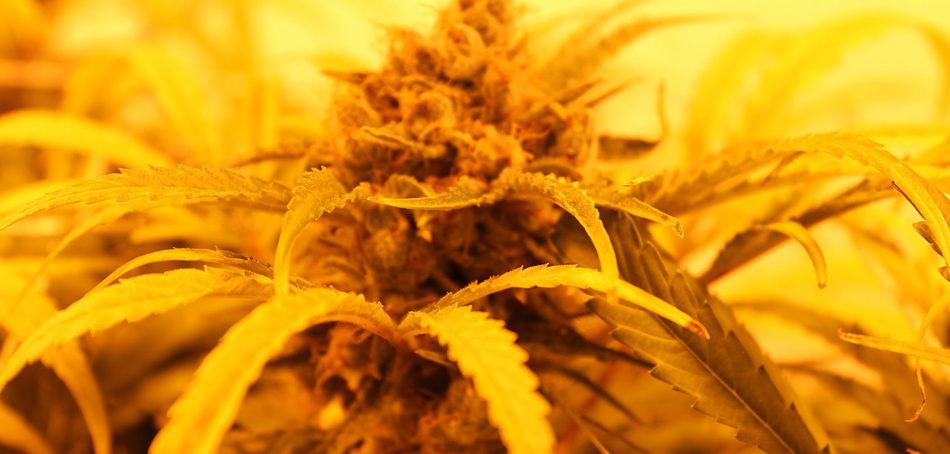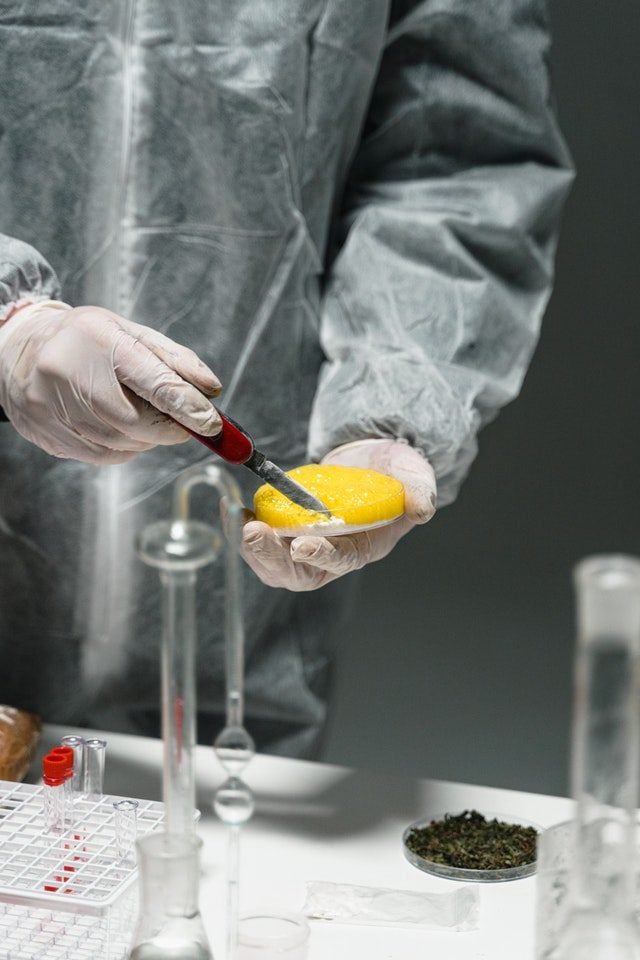
Delta 10 THC: How is it Created, Benefits and Risks
The cannabis industry is booming, and expanding legalization means more testing leading to a better understanding of how the chemical compounds, a.k.a. Cannabinoids in marijuana, affect the body. Delta 10 THC (Delta-10-Tetrahydrocannabinol) is one of the rarer cannabinoids and quickly becoming a trendy alternative for those seeking something new from their medical or recreational cannabis. It’s even helping people get the THC experience in areas where cannabis is not yet legal.
Of the cannabinoids in marijuana, THC is the most wanted because it’s what gives you the euphoric high people often seek from cannabis. But did you know there is more than one kind of THC?
What we commonly call THC is known chemically as Delta-9 Tetrahydrocannabinol. Delta-10 THC is a rarer cannabinoid and not quite as potent. It’s also not even the only other Delta form of THC.
Most often manufactured, delta-10 THC products are creeping up to capitalize on the cannabis craze while providing a legal loophole for areas that still have anti-marijuana laws. How is this possible?
How can you have a cannabis product that gets you high but is still legal in states where cannabis is not? What does it do? Why do people want it?
This article will give you a clear picture of delta 10 THC, its potential uses, benefits, health risks, and more. How do Delta-10 THC products stack against traditional cannabis products? Does Delta 10 have THC, and how much THC is in delta 10? Let’s find out.
What is Delta 10 THC?
Cannabis users know THC as the part of cannabis that gets you high, but they might not know other varieties of THC offer a different effect or “high.”
Delta 10 THC is an isomer or chemical cousin of standard THC. An isomer is a compound with the same chemical formula but a slightly different molecular structure. Simply put, they’re made of the same atoms, but the atoms are organized differently.
Delta-9 (THC) and another isomer, Delta-8 THC, along with Cannabidiol (CBD) and cannabinol (CBN), are the four most common of the hundreds of cannabinoids in weed. Delta-10, on the other hand, is one of the rarer ones.
Cannabinoids all interact with the endocannabinoid system (ECS) of the body. Like the nervous or endocrine system, the endocannabinoid system manages a host of vital life processes.
The endocannabinoid system is like a subdivision of the nervous system. It regulates
- Eating
- Learning and memory
- Emotional processing
- Inflammatory and immune responses
- Temperature control
- Pain control
- Sleep
Each weed strain can affect you differently because of how these various cannabinoids interact with your body.
You may be wondering why there are so many different types of THC. The reason is how THC is created.
How is THC Created?
Before it’s heated, most THC exists as tetrahydrocannabinolic acid (THC-A) in the flowers of the cannabis plant. However, when heated, this non-psychotropic acid (THC-A) becomes psychoactive THC during a process called decarboxylation.
This heating process also creates Delta-8 and Delta-10 THC, slight variations of common THC. These subtle differences can affect how they interact with the body.

Photo Credit: MART PRODUCTION
What is The Difference Between Delta-10 and Delta-8?
A few chemical bonds separate these two compounds, but those subtle chemical differences vastly change their effects. Delta 10 and delta 8 THC are both psychoactive, so they will get you “high.”
The Delta 10 THC high is lower than delta-9 THC, and they also differ from each other. If you still subscribe to the Indica vs. Sativa model, Delta-8 is like an Indica and Delta 10 THC like a Sativa. Nevertheless, Delta 10 THC is less potent than Delta 9 THC, making its potency similar to that of Delta-8 THC.
Delta-8 is known to have a more sedative effect and can have the same potential for “couch lock” as popular Indica strains. Like delta-9 THC, it interacts with the CB1 and CB2 receptors of the endocannabinoid system.
So What Does Delta-10 do to Your Body?
Delta-10 THC products are more uplifting and can help with creativity and cognition. While having an uplifting quality, it can also help with stress relief, relaxation, and energy boosts.
Delta-10 and delta-8 THC are popping up in products advertising these specific cannabinoids because they can offer you the high of THC without some of the paranoia some report from consuming edibles or general cannabis use.
How Does Delta-10 Affect the Body?
Delta-9 and Delta-8 THC activate CB1 receptors of the endocannabinoid system. However, Delta-10 THC does not activate these receptors. This can help with some of the paranoia and anxiety that some report from edibles.
While not as psychoactive or high-inducing as Delta 9 and Delta 8, Delta 10 will help regulate mood. It helps elevate your mood while also helping your body relax. This is partly due to the other cannabinoids in many Delta-10 THC products.
Delta-10 is so rare that it’s virtually impossible to find a product that’s 100% Delta 10 THC. As a result, it’s often blended with other cannabinoids like Cannabigerol (CBG) and Cannabichromene (CBC).
These compounds can often increase the onset of action. That’s essentially how long the product takes time to produce effects. Given that the cannabis industry is trying to shrink this time, this is why Delta-10 products aren’t as popular as products like Delta-8, which will get you higher faster.
How is Delta-10 THC Made?
Despite naturally appearing in the cannabis plant, many of the Delta-8 and Delta-10 products on the market are manufactured. So if you’re wondering, is Delta-10 THC a synthetic? The short answer is no.
Delta-8 and Delta-10 THC are produced through chemistry. They can be created by altering Delta-9 THC into Delta 8 or 10 THC. Or by adding chemicals, like hexane, to the process when cultivating Delta-9 THC to get more Delta-8 or Delta-10 THC.
One of the more popular ways is to cultivate CBD oil from hemp. That oil is then chemically altered to pull out delta-8 or delta-10 THC. This is the general appeal of these products because, technically, hemp is legal, so the high you get from Delta-8 and Delta-10 THC products are not, technically, against the law.
Is Delta-10 THC Legal?
Delta-10 is federally legal. The reason: most of the delta-10 THC on the market is made from hemp. Hemp is legally defined as any cannabis plant with less than 0.3% THC (Delta-9).
The 2018 Farm Bill, formally known as The Agriculture Improvement Act of 2018, removed hemp and hemp seeds from the Drug Enforcement Administration’s (DEA) schedule of controlled substances. This also authorized the production of more hemp-based products.
To spare you a lot of legalese, since Delta 10 products are made from the CBD oil legally extracted from decriminalized hemp, even though the product can get you high, it’s legal to purchase and consume on the federal level.
Some states have cracked down and have outright outlawed Delta 10 THC, including:
- Alaska
- Arizona
- Arkansas
- Colorado
- Delaware
- Idaho
- Iowa
- Mississippi
- Montana
- Rhode Island
- Utah
Before purchasing any Delta 10 THC products, it’s important to make sure that you’ve checked that they are legal in your state. Luckily, many companies will simply not ship to areas where it is legal. Remember, since these products are federally legal, they can be mailed but only to states where the product is legal.
Apply for a Medical Marijuana Card Online Today
Join over 100,000 patients who have chosen Green Health Docs as their medical cannabis doctors. We have a 99% approval rate and offer a 100% money back guarantee!
Can Using Delta-10 THC Make You Fail A Drug Test?
While Delta 10 THC is legal, it can still make you fail a drug test. Drug testing technology may have advanced, so your cold medicine doesn’t give a false positive, but Delta 10 THC is still THC.
So How Long Does Delta 10 THC Stay in Your System?
Depending on how your body metabolizes the Delta-10 can mean it can be in your system for two days or even a few weeks. It’s important to keep this in mind when using Delta 10 THC products that they will result in a positive on a drug test.
Is Delta-10 THC Dangerous?
Delta 10 THC would only be inherently dangerous if you’re allergic. The “high” is also fairly subtle and not as potent as Delta-8 or standard THC, so you’re less likely to have an adverse reaction.
However, there is potential danger as many toxic chemicals, like hexane, are used throughout the extraction process. Many of these products are not necessarily dangerous, as hexane is also used to cultivate other edible essential oils, but it can be cause for concern.
You will want to ensure adequate testing because some unscrupulous producers may be trying to jump on the cannabis bandwagon for a cash grab and not care how they get the Delta-10 as long as it’s technically legal and has enough output to sell. A proper testing lab can ensure no trace of toxic elements in the product. After all, Delta-10 THC was discovered accidentally after marijuana plants were exposed to chemicals.
A Few Words on the Delta-10 THC Side Effects
Since Delta 10 is significantly milder than Delta 9, THC’s reported side effects to include mild dry mouth, lethargy, increased appetite, red eyes, or psychoactivity. The body tolerates it better, with users reporting little to no Delta-10 THC side effects. If you want to play on the safe side, ensure you get high-quality products from authentic vendors.
Where Did Delta-10 THC Come From?
Delta-10 THC was discovered when Fusion Farms found their cannabis had developed strange crystals. In addition, their original cannabis plants had been exposed to fire retardants during the California wildfires.
In their attempts to decontaminate the cannabis, these strange crystals became interesting. When they were finally decontaminated and tested, they discovered these crystals were a variety of THC. Upon further testing, they found that test subjects got less high.
The rest is cannabis history.
Do You Qualify for Medical Marijuana?
Delta-10 THC and Delta-8 THC are popping up seemingly out of nowhere. The reason, the growth in the cannabis industry means an interest in new products, diverse highs, and legal alternatives for those not yet able to partake legally.
If you’re suffering from any of the medicinal marijuana qualifying conditions in your state, you can skip the Delta-8 or Delta-10 THC products and go straight for the full spectrum medical cannabis! Apply online for a medical marijuana card right now to get started!
This article is reviewed by Dr. Anand Dugar, an anesthesiologist and pain medicine physician. He is also the founder of Green Health Docs. Graduating from medical school in 2004 and residency in 2008, Dr. Dugar has been a licensed physician for almost 20 years and has been leading the push for medical cannabis nationwide.
